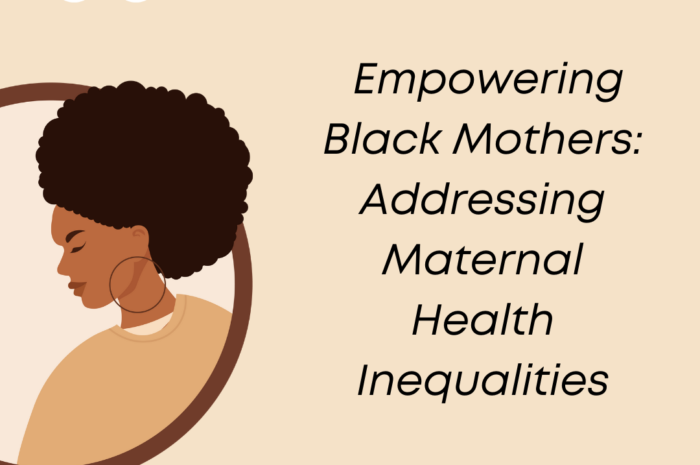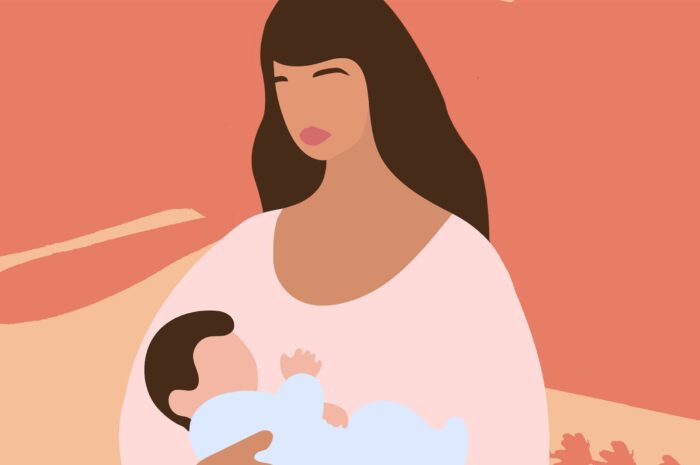- A new national campaign is calling on those eligible not to ignore their invite, as data reveals nearly 1 in 3 don’t take up the offer of cervical screening.
- A new survey released today shows embarrassment was the most common reason for not booking a screening appointment (42%) and almost two-thirds (63%) said they were nervous when they did attend.
- Celebrities including Linda Robson, Scarlett Moffatt, Louise Minchin, Victoria Scone and Sharon Gaffka are starring in a new campaign film which addresses concerns around screening and encourages those eligible to attend.
The Department of Health and Social Care (DHSC), with the support of the NHS, has today launched a major new national campaign to increase the number of those eligible attending their cervical screening in England. The new Help Us Help You – Cervical Screening Saves Livescampaign urges women and those who may be eligible not to ignore their cervical screening invite, and if they missed their last one, to book an appointment with their GP practice or sexual health clinic now.
Latest figures from March 2021 show that nearly a third (30%) of eligible individuals – women and people with a cervix aged between 25 and 64 – were not screened.[1]
Around 2,700 women are diagnosed with cervical cancer in England each year and approximately 690 women die from the disease – around two deaths every day.[2] Previous estimates suggest screening prevents 70% of cervical cancer deaths, but 83% of deaths could be prevented if everyone attended regularly.[3]
As part of the campaign, a new survey of 3,000 women and people with a cervix commissioned by DHSC today reveals a number of concerns which prevent cervical screening. Embarrassment was the most common reason for never having attended or missing an appointment (stated by 42% of respondents), followed by those who “kept putting it off” (34%) and “being worried it would be painful” (28%). 15% of lesbian or bisexual women over 25 had never had a smear test, compared to 7% of women over 25 in general.[4]
To tackle these barriers and help drive uptake, a new film has been released featuring Loose Women panellist Linda Robson, TV personality Scarlett Moffatt, broadcaster Louise Minchin, Drag Queen Victoria Scone and female rights activist Sharon Gaffka, alongside GP and media medic, Dr Zoe Williams. Through life saving conversations, they tackle the barriers to attending cervical screening and encourage those eligible to book their appointment when invited.
Maria Caulfield, Minister for Patient Safety and Primary Care, said: “Around two women die every day from cervical cancer, but screening takes just a few minutes and can stop the disease before it starts. Through our new campaign we’re calling on all women and people with a cervix to get screened to help save hundreds of lives. Even if you’re feeling embarrassed or nervous, please don’t ignore your invitation.”
The full findings from the new survey reveal:
- When asked about what their experience was like at their most recent test, over three in five (63%) said they were nervous and more than two out of five (43%) said they were embarrassed
- The majority of women and people with a cervix (81%) said the nurse or doctor put them at ease during a cervical screening
- Positively, over half of respondents (58%) were surprised about how quick the test was, and 89% would encourage others who are worried to go for a test
- Around one in 10 (12%) don’t feel comfortable discussing a cervical screening with anyone, but just under half would talk to their friend (48%) or their partner (46%) and two in five would talk to their mother (39%)
- The majority (89%) said they were glad they attended a cervical screening
Dr Nikki Kanani, GP and Medical Director for Primary Care at NHS England, said: “There is no doubt about it – cervical screening saves lives. By screening for risk signs at an early stage, it means that any abnormal cells can be treated quickly before they potentially develop into cancer.
“We know that it can feel embarrassing or feel like something that you can easily put off, but accepting your invite and getting checked could save your life. And please do speak to your GP practice about any concerns you might have – we are here to help you.”
In England, NHS cervical screening is offered to women and people with a cervix between the ages of 24.5 and 49 every three years. For those between the ages of 50 and 64, screening is offered every five years.
The campaign will emphasise that screening, which only takes a few minutes, can help stop cervical cancer before it starts, and is being supported by charities, including Jo’s Cervical Cancer Trust. Cervical screening checks for high-risk types of the Human Papilloma Virus (HPV), a common virus that most people will get at some point. While for people with high-risk HPV the risk of getting cancer is low, any abnormal changes can be identified early. Cell changes are easily treated, and this prevents cervical cancer. That is why attending screening appointments is so important.
Running throughout England from 14th February to 14th March, the campaign will include TV advertising, video on demand and social media, partnerships, together with national and regional PR activity. It also includes activity targeted to ethnic minority (Black and South Asian) and LGBTQ+ communities, as data shows these groups can experience specific barriers to taking up screening.
GP Dr Zoe Williams, who features in the campaign, said:
“The symptoms of cervical cancer are not always obvious, and there may not be any symptoms at all until the cancer has reached an advanced stage. That’s why it’s important that you attend all your cervical screening appointments.
“If you are feeling nervous or embarrassed, then I cannot encourage you enough to talk to your nurse during the test and remember you are in control and can stop the test whenever you want to. If you’re worried about feeling exposed, I would suggest wearing a skirt, dress or long jumper when you go for your screening. Screening can stop cancer before it starts and saves thousands of lives every year. If you missed your last cervical screening, book an appointment with your GP practice or sexual health clinic now.”
Scarlett Moffatt said:
“A few years ago, my cervical screening may have saved my life. The screening detected HPV and abnormal cells linked to the development of cervical cancer, and I underwent treatment to have the cells removed. If I hadn’t been to that appointment, I don’t know what situation I would have been in now. That’s why I’m so passionate about and proud to be supporting the new Cervical Screening campaign from the Department for Health & Social Care. To understand more about the role of screening and discuss why people may be reluctant to attend their appointment, I had an informative conversation with Dr. Zoe Williams. I cannot urge people enough to talk to their doctor or nurse about cervical screening if they’re feeling embarrassed or nervous. Please attend your appointment when you are invited – it’s a few minutes that could save your life.”
Sharon Gaffka, female rights activist, 25, said:
“You’re always a bit worried because you hear misconceptions from other people about cervical screening so you can think it’s going to be really embarrassing or you wonder if it’s going to hurt. Being part of these life saving conversations can really help put your mind at ease, and I find being open with my friends and family, just talking about the topic, can make a huge difference.”
Victoria Scone, RuPaul’s Drag Race UK contestant and TV Personality, commented:
“Initially I was uncertain as to whether a cervical screening was imperative for me as a queer woman. However, this new campaign has clarified that all women and people with a cervix, including those in the LGBTQ+ community like myself are eligible for a screening, so I booked myself in. I think it’s so important to openly talk about cervical screenings and encourage each other to attend theirs.”
Louise Minchin, broadcaster and journalist, 53, who usually feels nervous when she attends her cervical screening, said:
“Next time I get invited to my screening, I’m going to remember that it’s going to be ok and over in a few minutes. From my discussion with Dr Zoe Williams, there are many barriers which deter some women and people with a cervix from taking up the offer of a screening – from the worry it might hurt or embarrassment. I want to help break down these barriers and empower women to be confident to go to their cervical screening, and ask their doctor or nurse any questions on their mind.”
TV Personality and Loose Women Panellist, Linda Robson, 63, said:
“I think it’s so important to talk about cervical screening – I talk to my daughters about it regularly, and always encourage them to book if they are due. I want to do the same for everyone, as it’s a test that can save your life. Don’t put off your cervical screenings and if you have any worries, don’t sit there in silence, please talk to your friends or family! The screening itself is so quick, and doctors and nurses can talk to you about the process and what it entails.”
ENDS
Notes to Editors
About the campaign:
- Link to full campaign film and assets here
- Opinium conducted an online survey of 3,003 women and people with a cervix, aged 25-64, between 7th-17th January 2021, link to results here
- For more information, any interview requests, copies of the advertising or questions, please contact the Cervical Screening team at freuds: cervicalscreening@freuds.com or call 07734 785 472.
Additional quotes
Dr Edward Morris, President of the Royal College of Obstetricians and Gynaecologists, said: “It’s so important that you attend your cervical screening appointment when you are invited as it could be lifesaving.
“If you’re feeling embarrassed or worried about the screening in any way then healthcare professionals are there to support you. Whether this includes booking a longer appointment to give you more time or taking someone you trust in with you– there are lots of ways we can help you feel more comfortable.”
Samantha Dixon, Chief Executive, Jo’s Cervical Cancer Trust said: “This campaign is coming at a much needed time and will hopefully be a reminder to many to book in an overdue test, as well as highlighting the support available for those who find it harder to attend. Cervical screening is an incredibly important test that can stop cervical cancer from ever developing, and will help us get towards making cervical cancer a thing of the past”
Karen Hobbs, Ask Eve Information Service Co-Ordinator, The Eve Appeal said: “The Eve Appeal wholeheartedly supports DHSC’s latest campaign to increase the uptake in cervical screening appointments.
“The successful NHS cervical screening programme, saves thousands of lives every year. However, a significant percentage of people invited for a screening test are not attending this potentially life-saving appointment.
“Not everyone who doesn’t attend their cervical screening will have the same reasons, and this campaign is an important step in addressing the barriers that certain people face. Communication about the importance of cervical screening needs to reach everyone and address the common misconceptions and fears around cervical screening that contribute to the rates of non-attendance.”
About Cervical Screening & HPV
High-risk Human Papilloma virus (HPV) DNA is found in over 99% of all cervical cancers.[5] Cervical screening now primarily tests for the presence of this high-risk HPV infection, which is a common virus that most people will get at some point. HPV primary screening is a more sensitive and accurate test than the previous method (cytology alone) and is the best way to find out who is at higher risk of developing the cervical cell changes that over time could potentially lead to cervical cancer.
While the risk for people with high-risk HPV of getting cervical cancer is low, any abnormal changes can be identified early. If HPV is detected, the sample is then checked for any changes in the cells of the cervix. Cell changes are easily treated if caught early, so they don’t get a chance to turn into cervical cancer.
For further information about cervical screening, please visit www.nhs.uk/cervicalscreening.
Facts and stats on cervical cancer and cervical screening
- Around 2,700 women are diagnosed with cervical cancer each year in England.2
- Seven women are diagnosed with cervical cancer every day in England.2
- Cervical cancer is the 11th most common cancer in women in England.2
- Around 690 women die from cervical cancer each year in England. Two women die every day from cervical cancer in England.2
- The latest annual data shows that cervical cancer is the second most common cancer among women under the age of 35 in England.2
- It has been estimated that in England cervical screening prevents 70% of cervical cancer deaths and that if everyone attended screening regularly, 83% of cervical cancer deaths could be prevented.3
- People between the ages of 25 and 64 are invited for regular cervical screening under the NHS Cervical Screening Programme. Those registered as female with their GP practice and aged 25 to 49 are invited for routine screening every 3 years. Those registered as female with their GP practice and aged 50 to 64 are invited for routine screening every 5 years
- On 31st March 2021, 70.2% of eligible individuals had taken up the offer of screening. This has decreased from 72.2% on 31 March 2020.1
References
[1] Cervical Screening Programme England 2020- 2021 https://digital.nhs.uk/data-and-information/publications/statistical/cervical-screening-annual/england—2020-21
[2]Cancer Registration Statistics, England 2019. Available from:
Data obtained from NCRAS, PHE. On average 2687 women were diagnosed with cervical cancer (ICD-10 C53) each year from 2017 – 2019 and 689 women died from the disease. The latest annual data is for 2019
[3] Landy, R., Pesola F., et al., Impact of cervical screening on cervical cancer mortality: estimation using stage-specific results from a nested case–control study. British Journal of Cancer volume115, pages1140–1146 (25 October 2016). Available from: https://www.nature.com/articles/bjc2016290?foxtrotcallback=true
[4] Opinium conducted an online survey with a nationally representative sample of 3,003 women (and people with a cervix) aged 25-64. The online survey ran from 7th – 17th January 2021. Results available from here
[5] 99.8% of cervical cancer cases in the UK are caused by HPV infection https://www.cancerresearchuk.org/health-professional/cancer-statistics/statistics-by-cancer-type/cervical-cancer/risk-factors#ref-2
[1] Cervical Screening Programme England 2020- 2021 https://digital.nhs.uk/data-and-information/publications/statistical/cervical-screening-annual/england—2020-21
[2] Cancer Registration Statistics, England 2019. Available from:
Data obtained from NCRAS, PHE. On average 2687 women were diagnosed with cervical cancer (ICD-10 C53) each year from 2017 – 2019 and 689 women died from the disease. The latest annual data is for 2019
[3] Landy, R., Pesola F., et al., Impact of cervical screening on cervical cancer mortality: estimation using stage-specific results from a nested case–control study. British Journal of Cancer volume115, pages1140–1146 (25 October 2016). Available from: https://www.nature.com/articles/bjc2016290?foxtrotcallback=true
[4] Opinium conducted an online survey with a nationally representative sample of 3,003 women (and people with a cervix) aged 25-64. The online survey ran from 7th – 17th January 2021. Results available from: insert link once published
[5] 99.8% of cervical cancer cases in the UK are caused by HPV infection https://www.cancerresearchuk.org/health-professional/cancer-statistics/statistics-by-cancer-type/cervical-cancer/risk-factors#ref-2



